Turkey’s President authored two articles in the printed media in January – one in The New York Times and the other, in the Moscow-based business daily Kommersant. The two newspapers are as different at their home countries but Mr. Erdogan’s attempts to address both Russia and the US contain a certain common – and rather important – element.
Last week, The New York Times published an article titled ‘Trump Is Right on Syria. Turkey Can Get the Job Done’. Its authorship was ascribed to President Recep Tayyip Erdogan of Turkey. We’ll refrain from dwelling on who stood behind its publication. The editors received the text from the Turkish Embassy in Washington anyway.
Let’s delve the overt and covert meanings of the article. It isn’t the first time – or, apparently, the last time – that Mr. Erdogan uses this channel of conveying information or his position to the public, either at home or abroad. As a politician boasting versatile experience, he displays an ability to communicate with diverse audiences on every occasion. Notably, unlike Russian President Vladimir Putin, for instance, he doesn’t read texts off paper while addressing millions of people live on the air.
Beyond any doubt, the Turkish President has an ability to act straightforwardly on foreign fields. I mean American and Russian newspapers here. More than that, he creates an impression he has nothing to conceal, in essence. So let’s imagine his articles were not just offbeat demarches or publicity stunts.
Mr. Erdogan gives assessment to his US opposite number, Donald Trump, right in the opening lines of the NYT article, praising the US President’s decision to pull the troops out of Syria as a correct one. He stresses, however, the importance of implementing even this intrinsically right step in coordination with Ankara and, consequently, with the Turkish government, claiming that Turkey is the only truly reliable ally of the US. In addition, he speaks explicitly about the protection of interests of the US and the international community. This fact is amazing in itself, given the modest role the Turkish leaders had played before Mr. Erdogan and of his party took the helm of power. Not only would they never dream of giving advice in public to someone in the Oval Office. They would not allude to the very notion of ‘US interests’, deeming it a prerogative of US politicians.
Nonetheless, President Erdogan pushes forward with his idea, writing, “Turkey, which has NATO’s second largest standing army, is the only country with the power and commitment to perform that task.” The case in hand reveals the striving of Turkish officialdom to play the role of a regional leader or, as a minimum, to lay claims to it.
Recep Tayyip Erdogan has earned the reputation of a national leader seeking to tap compromise solutions at home and, on top of that (and this is equally important), representing a broad spectrum of social groups by virtue of his policies. He is able to come to terms with the opposition. Its the members, in spite of leveling criticism at him (which is natural for opposition), admit privately he was the founder of Yeni Turkiye (the New Turkey) that doesn’t stoop to anyone. In other words, the Turkish Republic does not have a single political force except AK Parti (Justice and Development Party) and its leader who could speak out from the position of defense of national sovereignty.
Mr. Erdogan says further Turkey became the first country in 2016 to deploy ground troops to Syria for fighting with the terrorists of the so-called Islamic State (an organization outlawed in Turkey). Moreover, it was the Turkish military interference that made it possible to cut off the militants from access to the borders of NATO and thus to slash their capability for terrorist acts in Turkey and in Europe.
It is noteworthy the author draws an interesting parallel with the efforts of the Western coalition to fight the Islamic State. Its air strikes at Raqqa and Mosul brought about a huge loss of civilian lives. Mr. Erdogan says, “[…] Turkish troops and fighters of the Free Syrian Army went door to door to root out insurgents in Al Bab, a former stronghold of the so-called Islamic State.” Clearly enough, the message he sends sounds like “Turkey knows better how to behave in the Middle East.”
Deserving especial attention is the author’s remark that Ankara does more than merely caring for urban infrastructures as it conducts antiterrorist operations in the Middle East, because it also finances schools and hospitals from the Turkish budget and hands out humanitarian aid. President Erdogan obviously hints at Syria’s future, since only those who invest in it have the right to pass decisions on it – something that is difficult enough to disagree with.
“I say this again: There will be no victory for the terrorists,” Mr. Erdogan says to the NYT readers. “Turkey will continue to do what it must to ensure its own safety and the well-being of the international community.” Obviously, this stance is not accidental, as he proclaims the kind of sovereignty Turkey will maintain in the future without securing consent from the US or the collective West. Any disrespectful shouts at it will be inadmissible, and this reads between the lines.
Nor does it seem accidental that the author worries about a possibility where “[…] some outside powers may use the organization’s (Islamic State’s) remnants as an excuse to meddle in Syria’s internal affairs.” The “outside powers” that are capable of full-scale interference are not really many and it doesn’t take long to figure out who they are.
We will skip the specification of measures and steps that President Erdogan proposes for stabilization in Syria. Let’s turn to one of the most interesting passages in the article – maybe, the one the whole article was conceived for. “Turkey intends to cooperate and coordinate our actions with our friends and allies. We have been closely involved in the Geneva and Astana processes, and are the sole stakeholder that can work simultaneously with the United States and Russia. We will build on those partnerships to get the job done in Syria.”
It is only at first glance that one may find something strange in the mentioning of Russia and the Astana process in an article addressed to American readers (and note the omission of Iran, also a party to the Astana process, probably to avoid an irritation for the Americans). There is an explanation for everything, and explanations surfaced quickly enough. Russia’s major business daily, Kommersant, published another article by the Turkish President this week. The title reads, “Turkish-Russian Cooperation Plays Crucial Role in Syrian Crisis Resolution.” It sounds rather challenging for Washington and for US society, which Erdogan addressed just recently, if one recalls Turkey’s strategic partnership with Washington within NATO format.
The article begins with a statement of the fact that the US pullout of Syria changes dramatically the essence of what is happening in the Middle East “[…] where hundreds of thousands of people have died.” Mr. Erdogan also mentions the talks that he held with Donald Trump in December, in the course of which he told his counterpart Turkey was full of resolve to make the necessary steps for restoring peace and stability in the Middle East. He says further he informed Trump this is the reason why “[…] we’d like to continue our close cooperation with the Russian Federation, since we launched the Astana process together with it.”
At this point, a number of logical questions come up. Doesn’t the Turkish President see any controversy in his attempts to convince the Americans of a necessity of collaboration with Russia for the solution of problems in Syria or anywhere at all? Does he really hope to win the US over to his side and simultaneously to invite Moscow and Putin to dialogue (albeit the one on Syria)?
The likelihood of hearing gaffe from Recep Tayyip Erdogan, a seasoned and tough-minded politician, is infinitesimal. In most probability, the text conceals something different and the Turkish leader has apparently thought up a multi-move script for killing several birds with one stone.
“The US withdrawal from Syria is a step in the right direction, as the crisis there can be resolved only by the countries that will get benefits from healing Syria’s wounds and damage from their deterioration,” the President writes. Could this mean that the unneeded US presence in the region is unneeded?
Mr. Erdogan says later cooperation and coordination with Russia is imminent for political resolution of the Syrian problem and for the maintenance of the Arab country’s territorial integrity, including political representation of the entire Syrian society and the return of displaced persons who fled their homes. He says along with it cooperation on the agreement on Idlib that was discussed in 2018 offered an instance of successful cooperation.
Following the President’s declarations in Kommersant one might think he has shelved cooperation with the US in Syria once and for all and cannot wait to see the pullout of troops. But there’s a peculiar detail, however.
“Over the past several weeks, we’ve witnessed the attempts by some quarters in the US to hinder the decision on the withdrawal of troops destined to facilitate the untangling of the Syrian crisis,” Mr. Erdogan writes. The line reveals that he doesn’t view Washington’s international police line as an integral one or representing the true national interests of the Americans.
He says subsequently that, from Turkey’s standpoint, the agreement reached at his talks with President Trump became a springboard. “Simultaneously, we can see a whole range of assertions like ‘Turkey will destroy the Kurds’ or ‘We’ll not let down our Kurdish allies’ that aim to put pressure on the Trump Administration,” he writes.
As Mr. Erdogan mentions the US allies among the Kurds in the Syrian terrorist milieus, he says, “Some groups in the US are trying staunchly to ignore the fact that this grouping doesn’t represent the Syrian Kurds. On the contrary, it has done much harm to the Syrians of Kurdish descent.”
What we have said above is conducive to the conclusions that the ‘common points’ made in the articles in NYT and Kommersant can be summarized in a few formulas.
1. The ‘New Turkey’‒ Yeni Turkiye does not accept disrespectful shouts, assessments or statements even from its US allies. It will not seek permissions from anyone and will always give independent assessments to global developments.
2. Turkey will continue aspiring to the status of a regional leader and, on top of that, of a global arbiter.
3. “Turkey knows better how to behave in the Middle East” because it cares for peaceful civilians and is the only country combatting terrorism in practical terms rather than in theory. This means the actor that is investing in the future right now will have the power to shape up the future of the Middle East together with its partners.
4. Standing in line with this position is the mentioning of Russia in the context of the Astana process. Russia gets the role of a situational partner necessary for supporting Turkish sovereignty, nothing more than that.
5. Acting together with the partners of its choice, Turkey will attain the things that won’t be attained together with the US (in the spheres where Washington won’t heed Ankara).
6. “Certain quarters” and “some forces” cannot represent Washington’s official line.
Notably, the last passage of the Turkish leader’s article in Kommersant reaffirms some of UWI’s conclusions. “We’re not going to ask anyone about how we should act on a terrorist grouping that has been targeting our citizens for more than 30 years by now or to solicit permissions for struggle with terrorism,” Mr. Erdogan says. “We reserve the right to pursue the terrorists threatening our country from the Syrian territory whenever the favorable conditions for this crop up.”


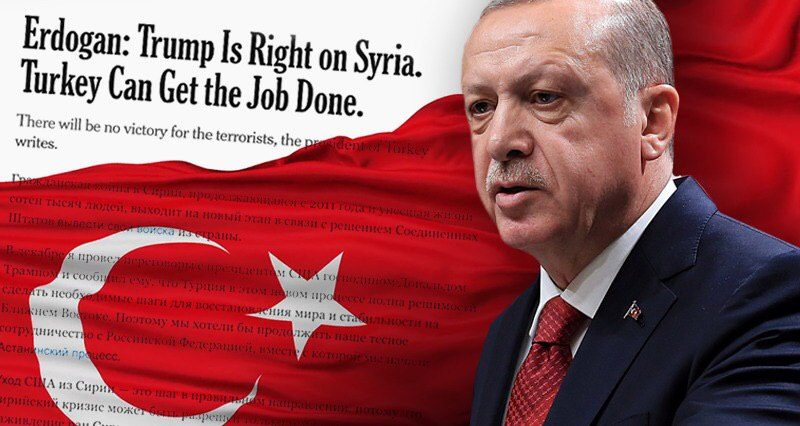

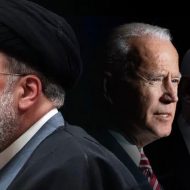
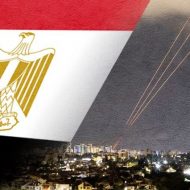
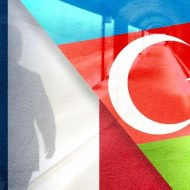
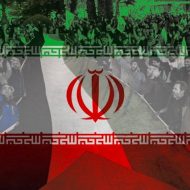
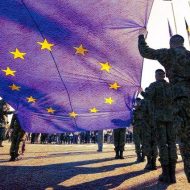
Leave a Reply